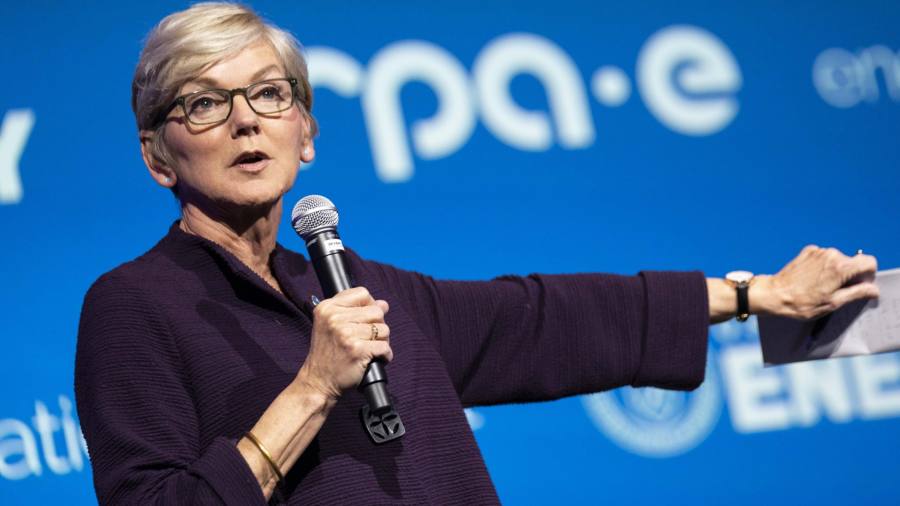US energy secretary Jennifer Granholm said on Wednesday that the federal government could begin buying oil to replenish an emergency stockpile later this year, “if it is advantageous to taxpayers”.
The comments indicated that the US could quickly shift tack after completing congressionally mandated sales from the Strategic Petroleum Reserve, ending more than 18 months of historic releases that were designed to hold down petrol prices and counter high inflation.
Purchases would start in the second half of the year, Granholm indicated, after the completion of sales “in the June-July timeframe.
“Then we will look to take advantage of prices if it is advantageous to the taxpayer in the rest of the year. We hope to be able to start to refill.”
Granholm’s comments at an energy conference at Columbia University in New York marked a contrast with her remarks to Congress amid an oil market rout last month. She said then it would be “difficult for us to take advantage of this low price”, in remarks that had sent oil prices even lower.
Crude prices rose sharply on Wednesday after Granholm’s new comments, with US benchmark West Texas Intermediate trading up 1.6 per cent at $82.94 a barrel, its highest intraday price this year.
The White House had previously said it would begin replenishing the emergency reserve if US oil prices fell to a range of $67-$72 per barrel — an effort to stabilise future oil prices at a level high enough to spur more shale drilling.
The Biden administration has released record volumes of oil from the reserve in a bid to cool petrol prices that were driven higher in part by Russia’s full-scale invasion of Ukraine again last February.
The volume of emergency oil is at its lowest level since the early 1980s, prompting concerns that the US would have less firepower to respond to sudden supply shortages.
“We are planning on refilling it. We want to get to where it would have been if it had not been for the war in Ukraine,” Granholm said on Wednesday. “The fill rate is significantly slower than the sell rate. But we are doing it. We have a plan to do it.”
Analysts said the plan to restock the reserve would remain hostage to oil prices.
“The secretary sent a buy signal but she seems to be bargain hunting,” said Kevin Book at consultancy ClearView Energy Partners. “The worst time to buy oil insurance is when you need oil insurance.”
Oil prices have risen in the past week after a surprise decision from Saudi Arabia and other Opec+ countries to slash production — a move partly motivated by Granholm’s comments to Congress last month, said people familiar with the kingdom’s oil strategy.
But Granholm’s new comments were “welcome to those concerned about energy security and to those in Opec+ concerned about price stability”, said Bob McNally, head of Rapidan Energy Group.
Read the full article here



